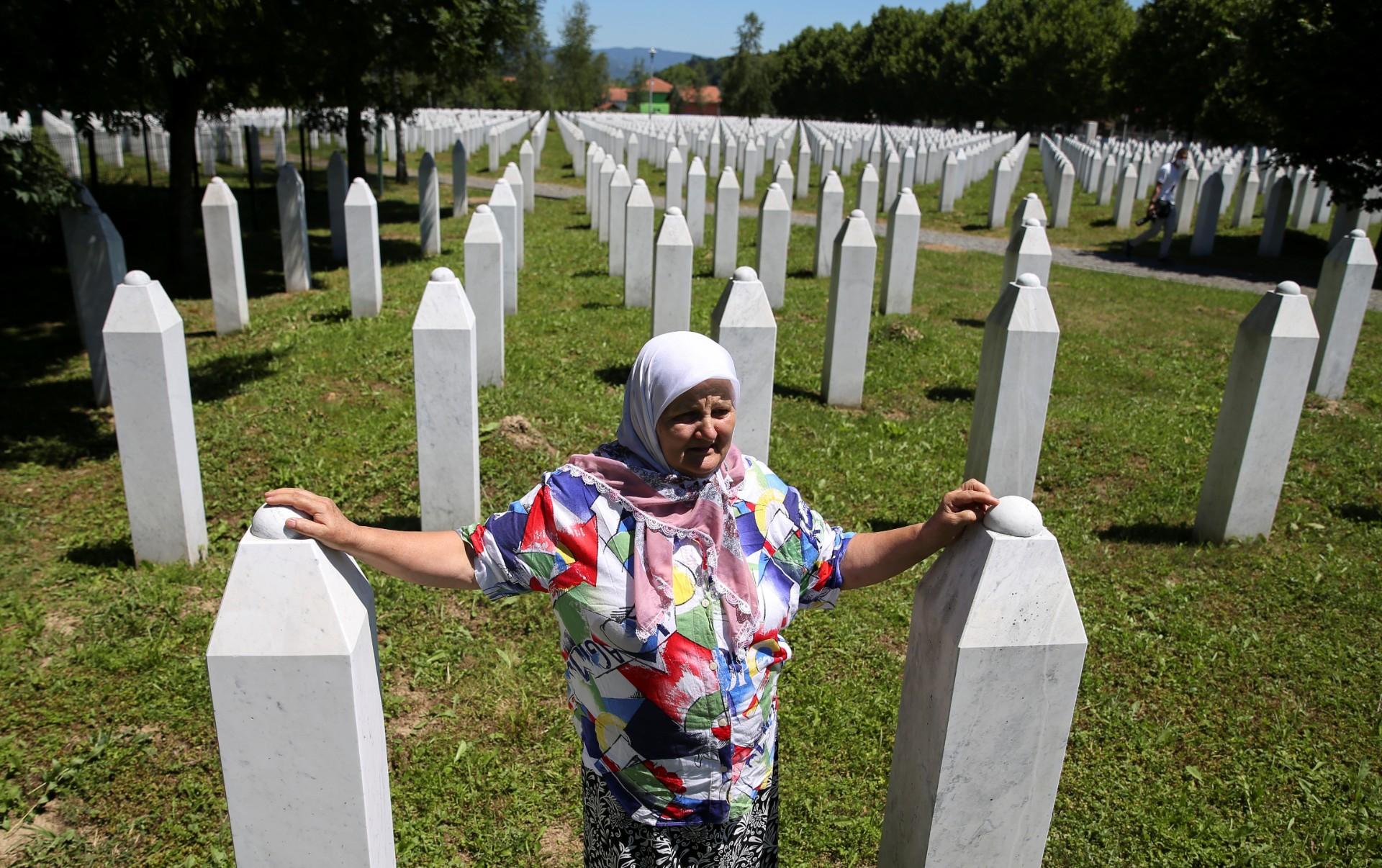Saturday marks the 25th anniversary of the Srebrenica massacre, in which Bosnian Serb forces killed about 8,000 Muslim men and boys during the Bosnian War.
It was the worst atrocity on European soil since World War II. Over the past few days, citizens of Bosnia and Herzegovina have been commemorating this tragedy and reminding the world that they’re still seeking full justice. Some nations, including Serbia, deny the nature of these crimes.
Last year, the remains of 33 newly identified victims of the massacre were buried at a memorial site near Srebrenica at a formal ceremony. Some war criminals had not faced justice until recent years, others are still free.
Related: Thousands remember Srebrenica massacre victims
Today, war crimes continue to be perpetrated in major conflict zones such as Yemen and Syria.
David Scheffer, who was the US ambassador-at-large for war crimes issues from 1997 to 2001, spoke with The World’s host Carol Hills about Srebrenica’s legacy and why it’s so difficult to prosecute those who have committed war crimes and crimes against humanity.
Carol Hills: David, give us some more background on the Srebrenica massacre. Why is it so significant, and why is it so important that we remember what happened there?
David Scheffer: Well, it’s extremely important. The Srebrenica massacre was the final large atrocity of the Bosnian conflict of the early 1990s. It was not really supposed to happen. There were considerable efforts to reach a negotiated settlement between the Bosnian Serbs and the Bosnian Muslims. And so having suddenly a huge genocidal event …On the one hand, it was horrific. And on the other hand, it was such a shock to the system, and it galvanized the West to finally use military power to bring the conflict to an end. It has sort of an ironic consequence at the end of the day that the atrocity itself actually brought the war to an end.
Who was responsible for these atrocities?
In Srebrenica, it was the Bosnian Serbs. And of course, there was complicity on the part of the Serbian government, which was supporting the Bosnian Serbs. And that has been proven in the International Criminal Tribunal for the former Yugoslavia, with the convictions of General Radislav Krstić, General Ratko Mladić and President Radovan Karadzić at the time.
And did you have a role in getting any of these men prosecuted?
Yes. As ambassador-at-large for war crimes issues in the late 1990s, I was responsible for helping bring as much evidence as possible to the Yugoslav tribunal in The Hague that would implicate senior leaders.
Are there still war criminals who were involved in the Srebrenica massacre who roam free today?
Yes. These are mid-level and low-level individuals. Now, many of them have been brought to justice before the war crimes chamber, which sits in Sarajevo. That’s a domestic Bosnian court. But others are living in Serbia, and some of them have been brought to justice, but many have not. So there’s a large number of actual physical perpetrators of the genocidal acts at Srebrenica who continue to evade arrest or evade justice, depending on where they’re living and what the authorities consider to be appropriate for bringing them to trial.
Related: UN envoy calls on Turkey to prevent Srebrenica-style massacre in Kobani
I want to jump to today. Unfortunately, war crimes and crimes against humanity are still happening across the globe, often in conflict zones and places like Yemen and Syria. What’s being done about these crimes today?
Not enough is being done. But I think there are very brave and committed individuals and even governments around the world that are doing the best they can. For example, with Syria that the US and France and the UK on the Security Council have sought to have the whole Syrian situation referred to the International Criminal Court for investigation and prosecutions. But that referral has been vetoed by Russia, which of course is aligned with the Assad government in Syria. Frankly, why there has not been a referral of the Yemen situation to the International Criminal Court pretty much boggles my mind, although I can understand the politics of it.
In the case of Yemen, who or what entity would be the one to bring that to court to make that an issue?
Well, because Yemen is not a state party to the Rome Statute of the International Criminal Court, you have to get a referral by the UN Security Council to the court. In the case of Yemen, of course, Saudi Arabia and the United Arab Emirates are prominent parties in the conflict in Yemen. And I can imagine that politically, the Trump Administration would not necessarily be the one to refer Yemen or bring it up in the Security Council, given its relationships with Saudi Arabia and the United Arab Emirates. But at the end of the day, you would have to get all five votes of the permanent members of the Security Council. But that’s extremely difficult with Yemen because of the politics concerned.
You were the first US ambassador-at-large for war crimes issues. The current US ambassador-at-large for war crimes issues is Morse Tan. What’s he been working on within this administration?
I am not conversant with that since I’m not in the government anymore. I do know that Ambassador Tan has a long background in understanding the crimes against humanity that have been committed and continue to be committed in North Korea. And so I would anticipate that his office, under his leadership, continues to look at that issue, that it was something the US could take the lead on and even if one fails in the Security Council, at least go on record of trying.
This interview has been condensed and edited.
